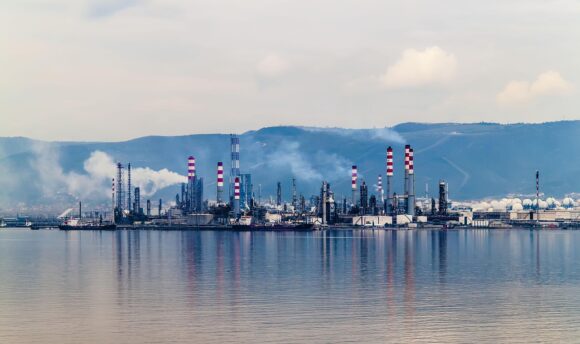Originally published in Environmental-Finance on May 17, 2022.
Laurent Rousseau, who was appointed Chief Executive Officer of SCOR almost a year ago, will meet his shareholders for the first time on 18 May. At a time when many insurers, as society’s risk managers, are not fulfilling their responsibility to actively support global action to avoid climate breakdown, will Laurent Rousseau use the general meeting to announce that he will stop supporting the expansion of the primary cause of global warming, fossil fuels?
As the 4th largest reinsurer in the world, SCOR knows better than anyone the risks that climate change poses to populations, the economy and the insurance world itself. The cost of natural disasters in 2021 was estimated to be 270 billion dollars, according to a Swiss Re study. SCOR has been directly impacted by the intensification of climate impacts with costs amounting to 1.5 billion dollars for the French reinsurer, i.e. around 10% of its earned insurance premiums in 2021.
SCOR’s slow response to the climate emergency
The urgency is there. According to the IPCC’s recent report, we have three years left to drastically reduce our emissions in order to avoid going beyond 1.5°C in a destabilised world with vast pockets of uninsurability.
And yet, SCOR has so far been slow to respond to the climate emergency. In 2017, SCOR became the first reinsurer to unveil a carbon policy for its insurance business, but the French reinsurer was quickly overtaken by its international peers. It took four years for the company to commit to apply its coal commitments to reinsurance treaties.
SCOR at a standstill on oil and gas
But above all, the momentum launched by SCOR in 2017 seems to have stalled. Unlike its European peers – Allianz, Aviva, AXA, Generali, Hannover Re, MAPFRE, Munich Re, Swiss Re and Zurich – SCOR reinsures the oil and gas sector without restrictions.
The French insurer did recently commit to not insure TotalEnergies’ massive East African Crude Oil Pipeline, EACOP, but this is an ad hoc commitment when the climate requires a systematic approach and exclusion of all new oil and gas production projects. This is the limit drawn by the International Energy Agency in its scenario for achieving carbon neutrality by 2050 along a 1.5°C trajectory. This is also the measure adopted by its direct competitors, Swiss Re and Hannover Re, which have gone beyond their initial measures on oil to also announce a halt to all underwriting of new gas projects.
New leadership, a boost?
The work of the IEA and IPCC leave no room for doubt: we need to move quickly towards a complete halt to oil and gas expansion, across the entire value chain, and to massively support the deployment of solutions in the energy and other high emitting sectors. New gas and oil production projects have no place in a transition scenario. The roadmap for SCOR’s new CEO therefore seems to be clear.
On 12 July 2021, a few days after his appointment, Laurent Rousseau announced that SCOR was a co-founder of the Net Zero Insurers Alliance (NZIA). This is a strong signal for the climate, accompanied by clear objectives: to achieve carbon neutrality compatible with a 1.5°C trajectory for insurance and reinsurance portfolios by 2050.
Because the world of tomorrow is being shaped today, it is without further ado that Rousseau will have to choose his side: the oil and gas industry or the sustainability of our future and of his own company.



